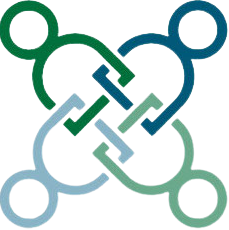
Community Tours
Community tours will take place on Tuesday August 12, the day before the official start of the conference. As space is limited, tours are only open to those who pre-registered. You will not be able to attend if you did not pre-register. Please plan to arrive by 8:30 am to check-in and receive your name badge in the foyer of African Fires on the 2nd Floor. The bus will depart at 9:00 am and return at 1:00 pm.
1. The Markets of Warwick
The Markets of Warwick Tour is a guided experience through the historic Warwick Junction in Durban, South Africa. This area is home to one of the largest and most vibrant informal trading hubs in the country, where thousands of traders [over 10 000] sell a variety of goods, from fresh produce and traditional medicines to beadwork and street food. The tour highlights the vital role of informal traders in Durban’s economy and gives visitors insight into their daily lives and challenges. Visitors also get to experience Zulu traditions, street food, and local craftsmanship firsthand. The tour is run by a local NGO, Asiye eTafuleni, which works with local traders trained as tour guides, the tour promotes recognition and support for informal workers who face systemic challenges in city planning and offers a responsible tourism model that directly benefits traders and the community. The tour will also highlight the role the Durban University of Technology (DUT) has played in supporting the Markets of Warwick community, particularly through research, student engagement, and collaborative projects. After the tour, there will be a reflection session which will provide an opportunity for participants to process their experiences, discuss key takeaways, and explore how the tour has influenced their understanding of the informal trade, urban development, and cultural heritage.
2. Phoenix Settlement Area
The Phoenix Settlement in Durban is a landmark of social justice, peace, and community engagement, founded by Mahatma Gandhi in 1904 as a base for his early activism in South Africa. Established as a self-sufficient community rooted in principles of nonviolence, self-reliance, and social equity, the settlement became a hub for Gandhi’s political work, including the launch of Indian Opinion, a newspaper that played a crucial role in the struggle against colonial and racial oppression. Today, the Phoenix Settlement stands as a heritage site and a center for community development, housing initiatives focused on education, conflict resolution, and social justice. The area continues to serve as a living example of grassroots activism, empowering local communities through leadership programs and advocacy for marginalized groups.
3. Durban Green Corridor
The Green Corridor Durban is a dynamic community-based initiative focused on environmental conservation, sustainable tourism, and socio-economic development. Operating along the uMngeni River and other key ecological zones, Green Corridor works to restore natural habitats, promote eco-tourism, and support local communities through job creation, outdoor education, and youth empowerment programs. With a strong emphasis on climate resilience and inclusive development, the initiative engages in river clean-ups, biodiversity conservation, and eco-adventure experiences that connect people to Durban’s rich natural landscapes.
